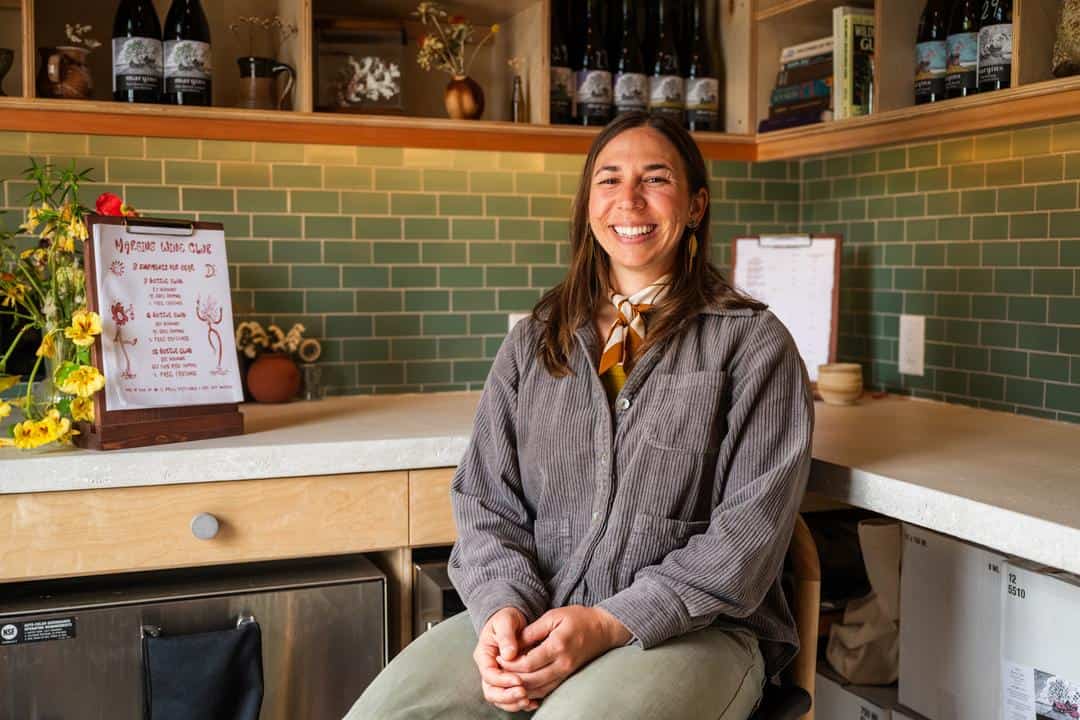Margins Winery is Making Waves in the Wine Industry
Have you ever heard of Assyrtiko or Negrette? Probably not, but Megan Bell of Margins Winery wants to change that – and a whole lot more.
Megan Bell is the owner and founder of Margins Winery. Megan is steadfast in her commitment to promoting inclusivity and protecting the environment – two tenets that affect every choice she makes from how she produces her wines to how she interacts with the community and who she works with. Megan’s goal is to shine a spotlight on all of the people, vineyards and varietals that operate outside of the traditional “margins” of the wine industry. She prides herself on making natural wines, sourced from organic vineyards, with a team of folks who traditionally have been underrepresented in the world of wine.
What wines are produced by Margins Wine?
Hint: If you’ve never heard of it, Margins makes it.
After graduating from the UC Davis Viticulture and Enology Program, Megan Bell accepted an internship in France, helping to define the course of her career. “I graduated when I was twenty-one. Then, I went to France, where we made 14 different Chenin Blancs. I was like, ‘What is this grape and wine? It’s so good. People need to know about it! I went to school for this and I could only name ten or less grapes,” she recalls. From that point on, Megan honed in on her desired niche: highlighting lesser-known (or marginal) varietals.
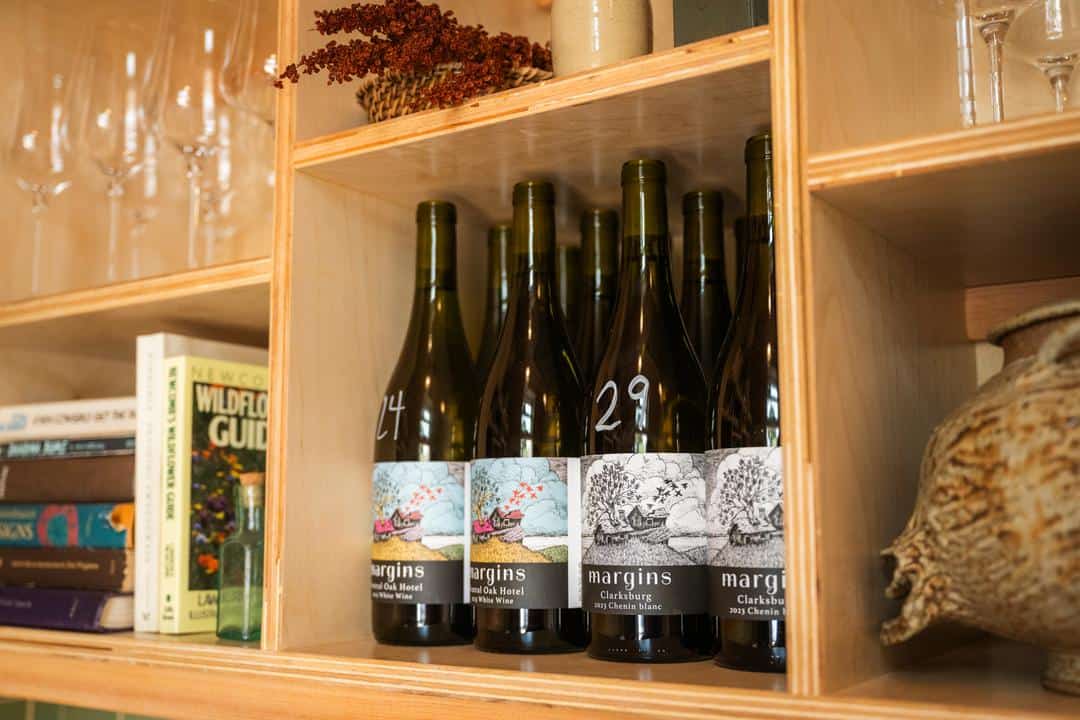
Today, Margins Wines boasts a robust line-up of obscure – but delicious – varietals, including more than a few iterations of the ubiquitous Chenin Blanc. Have you ever tried Counoise, Mourvedre, Nebbiolo, Verdejo, Assyrtiko or Negrette? If not, you definitely should. Start planning your Santa Cruz County road trip or order online from the comfort of your own home.
What are natural wines?
Megan refers to Margins Wines as “natural wines”. Natural wines is an unregulated term, which means vintners can define it for themselves. Megan defines natural wines as “wine made from organic grapes with no additives except for a tiny amount of sulfites.” Consumers might see similar products marketed as clean, green, or low-intervention wines.
Are Margins Wines organic?
Margins Wines are made from grapes grown in organic vineyards. For Megan, choosing organic produce is something that she feels strongly about – even from a young age. “I just can’t imagine it any other way. That’s just the way food should be. For me, if I’m going to ingest it, it’s going to be organically farmed,” she asserts.
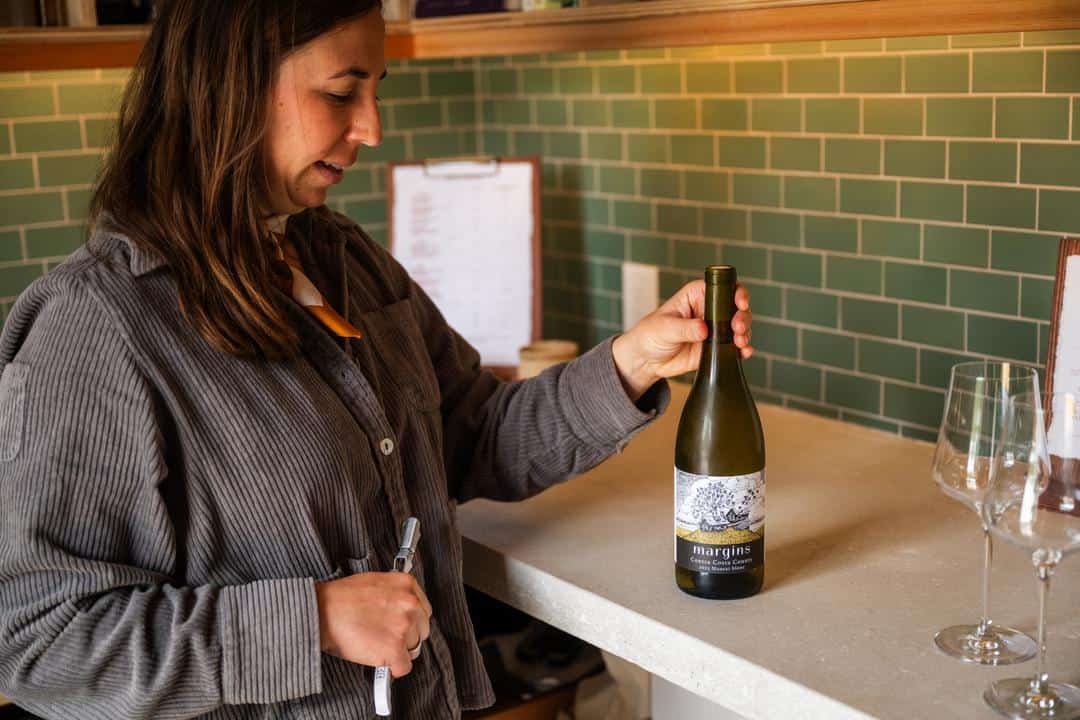
Some of the vineyards Megan sources from are certified organic, and others while not certified, do adhere to organic practices. Since the start of her career, Megan has championed organic viticulture, working with growers and acting as a guaranteed buyer as they transition their vineyards from conventional farming to organic.
In 2020, she exclusively began working with organic growers because she notes with a smile, “So much more acreage is farmed organically now than it was five years ago, which is a wonderful step in the right direction for this industry.”
Megan personally understands the challenges and rewards of organic farming. She co-farms a small organic vineyard in the Santa Cruz Mountains. There she grows certified organic Pinot Noir, Cabernet Franc and Merlot – which are used to craft some of Margins’ most popular wines, including the 2022 Rugged Heart and the 2023 White Pinot Noir.
Organic grapes vs organic wines
Although the grapes for Margins Wines are all sourced from organic vineyards, the wines are not considered organic. So, why isn’t wine made from organic grapes automatically classified as organic wine? The answer is simple – organic wine cannot contain sulfites. Megan adds a very small amount of sulfites to her wine for consistency – which acts as a preventative measure against any perceived flaws that could pop up in the wine.
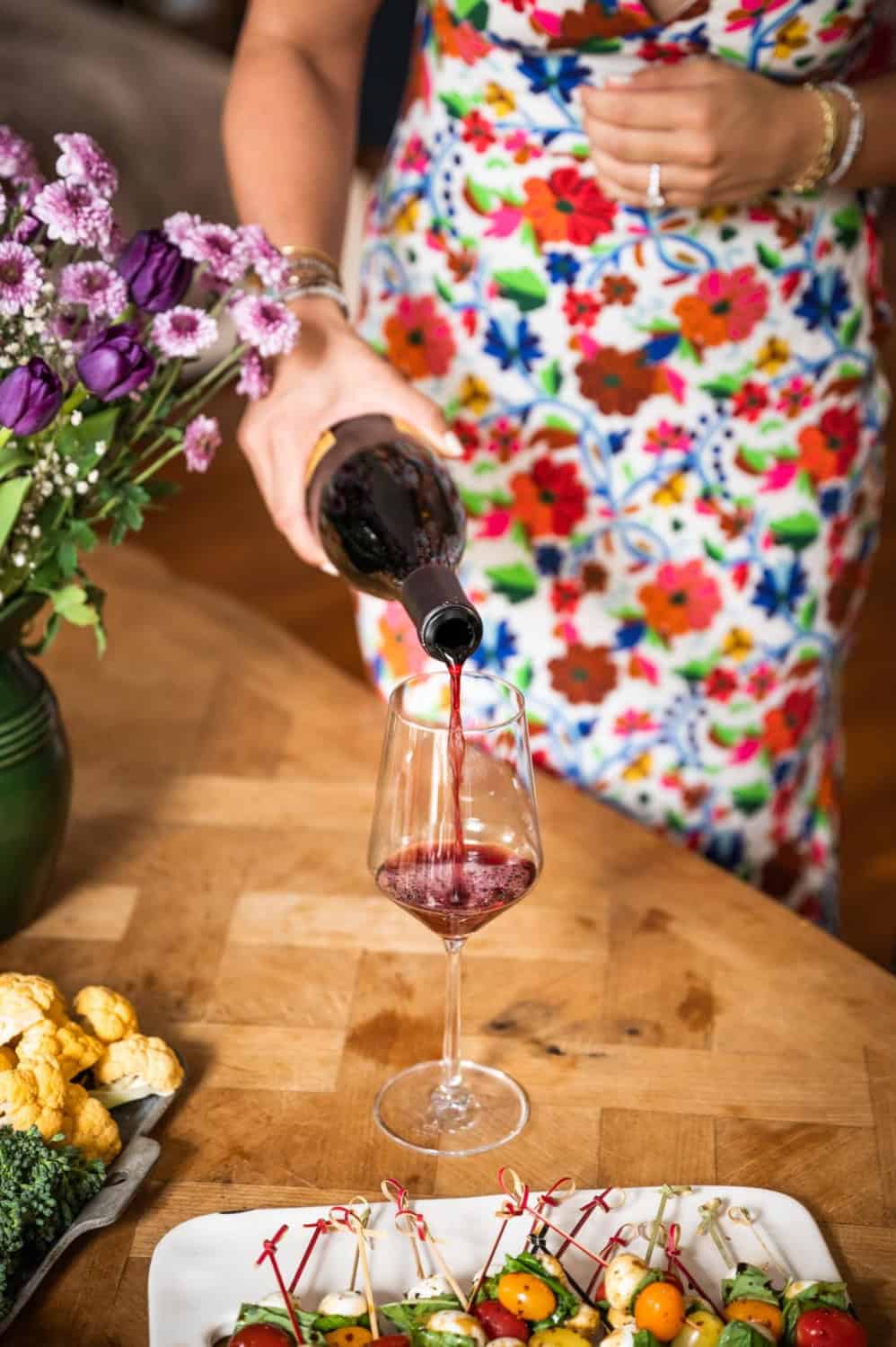
Are sulfites in wine really an issue?
In recent years, it has become increasingly common for people to assume that they are sensitive to the sulfites in wine. Megan counters this trend, claiming that it is likely a reaction to one of the other 70 common additives you might find in a bottle of wine. In regards to any assumed sensitivities, she elaborates, “I would recommend that they get an allergy test for sulfites. There are sulfites in almost all of our food. For example, dried fruit and french fries have roughly 200 to 400 times the amount (of sulfites) that is in wine. So if they’re not affected by that, they’re probably not allergic to sulfites.” Which may be good news to some of you.
Promoting inclusivity in the wine industry
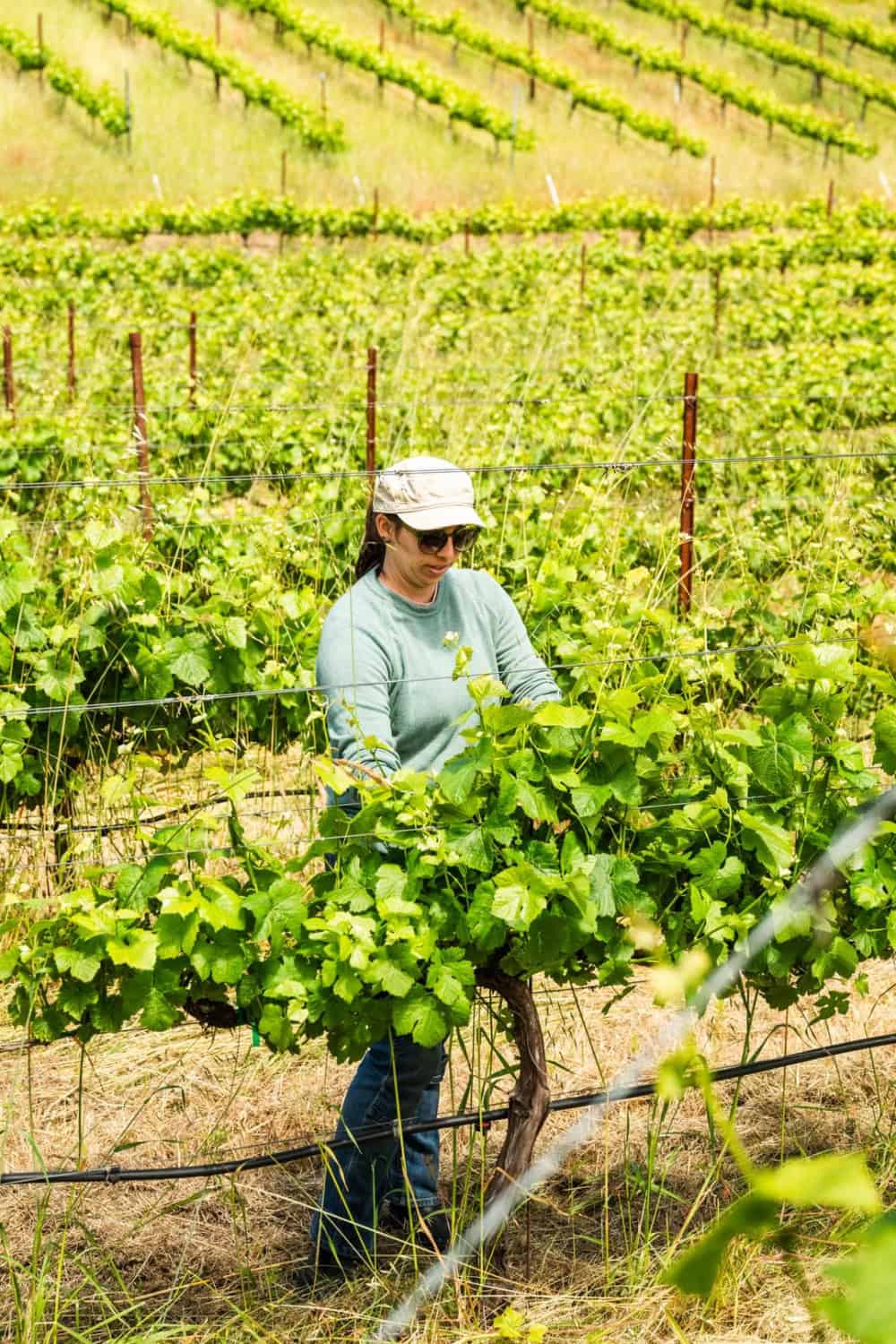
Megan views her position as a “privilege”. It is one, she explains, that she has worked incredibly hard for – but nonetheless considers a privilege. Only 4% of all US wineries are owned by women – but Megan is doing her part to incite change. “Being a woman in the wine industry is, at this point, a privilege,” she notes. “I would like it to be run-of-the-mill boring news sometime in my career. And I plan on making the hiring choices to help get us there.”
Sustainable wages – putting your money where your mouth is
Megan believes the first step towards a more inclusive wine industry is paying all her employees, even hourly employees and interns, a living wage.
She elaborates, “When I hired my first interns to work with me, I put their hourly rate at the highest rate I had ever made in my full time jobs in the wine industry because wine production just isn’t a high-value industry. The people that are in charge need to decide to set the wages higher. Then, we can have a realistic value put on this really important skill set. We won’t be able to make those changes unless some of us go first. Could we hire that job for less? Yeah, but I choose not to because I want people to make a living wage so that a variety of people can stay in this industry.”
Set for success – choosing employees and helping them to thrive
The wine industry is incredibly competitive. Like most industries, people with connections have an in, and people without connections are, well…out.
Internships at Margins are particularly coveted because interns work directly with the winemaker. Megan illustrates, “Usually jobs like that can only be acquired by folks with an amazing resume. And how do you get an amazing resume? Well, you probably had some sort of privilege in your life thrown in there”.
Megan makes a point of bringing in people who wouldn’t traditionally have access to such a valuable internship. She states, “I deliberately choose to hire people that do not have any experience, that would not normally get these roles, in order to jumpstart their career. When they leave my internship, they have a better chance of staying in the industry because of the quality of the future jobs they’re going to have access to.”
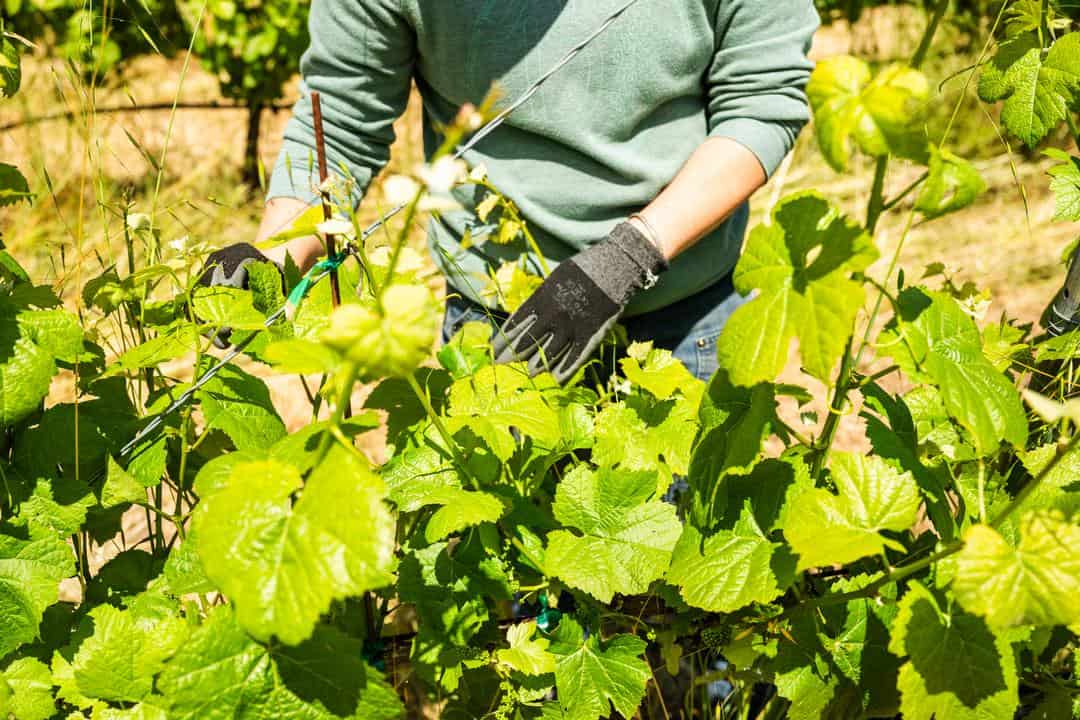
Once internships are complete, Megan takes an active role in helping connect interns with their next job. She explains, “I think that’s the role of someone in my position, with the connections we have. I think of their potential and what they can achieve if someone gives them opportunities.” Her outlook is influenced by her own experience starting out in the wine industry, when she didn’t have anyone to step into the role of mentor or help her to navigate the industry. This is one of the many reasons why she’s particularly passionate about acting as a mentor to her employees, and especially her interns. “I think people think of interns as disposable – here today, gone tomorrow. Instead, I see them as my past self. I was that intern, and look where I am now,” Megan reflects.
It takes a (wine) village – joining forces with other women
Megan’s commitment to inclusivity within the wine industry goes beyond her role as vintner at Margins Wines. She serves on the board of Vingard, a non-profit that promotes equity and sustainability within the natural wine industry. “We put on events like the Women in Natural Wine Fair, highlighting women from all over the world that make natural wine. When we started the fair in 2018, there were 11 of us pouring. Last year, there were 75, which is great news! There are vastly more women in wine production than there were even five years ago – but there’s still a long way to go.”

Margins Wine Cubby – connecting with the community
Megan opened the Margins Wine Cubby in 2020 – a small tasting room located in a well-trafficked shopping center. She hopes that the Wine Cubby will bolster name recognition and help foster relationships with the local community. “I had been a business owner in this town for eight years, but people in town had never heard of us,” she laughs. “It’s only since opening the storefront that we’ve been able to engage with the community. The response has been really wonderful.”
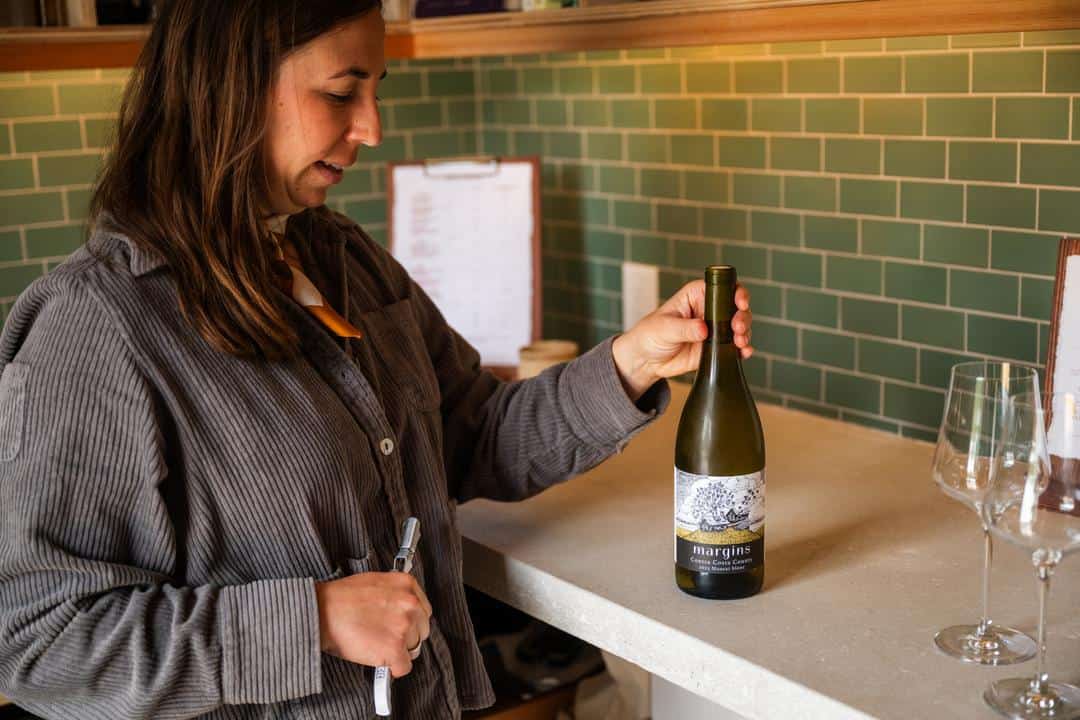
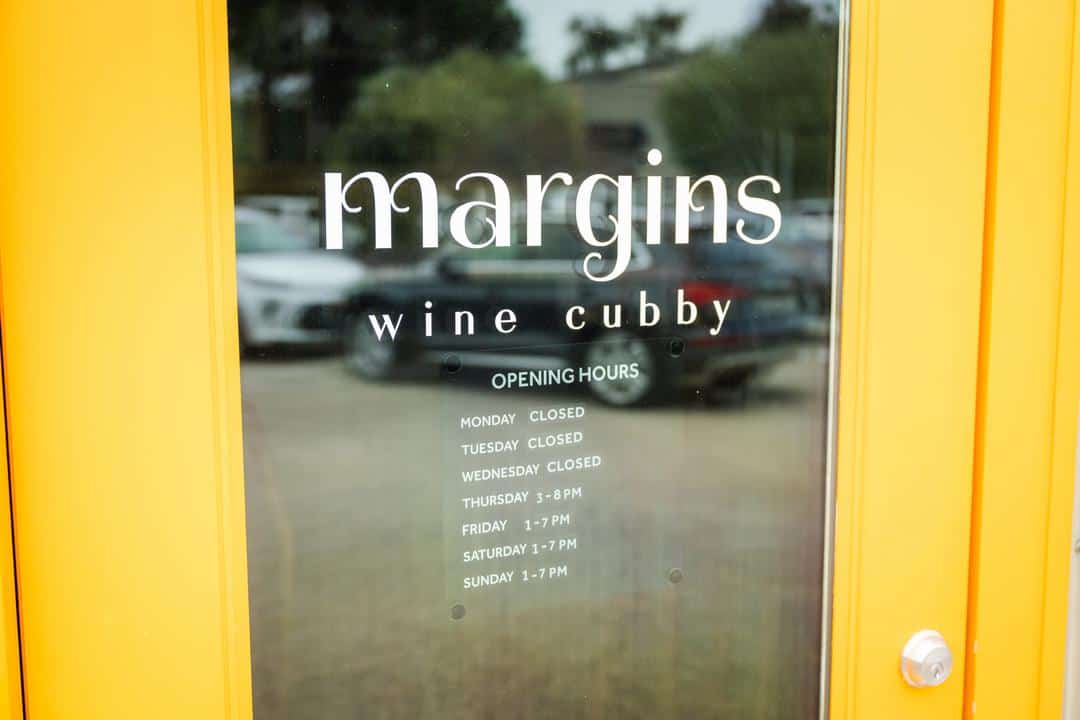
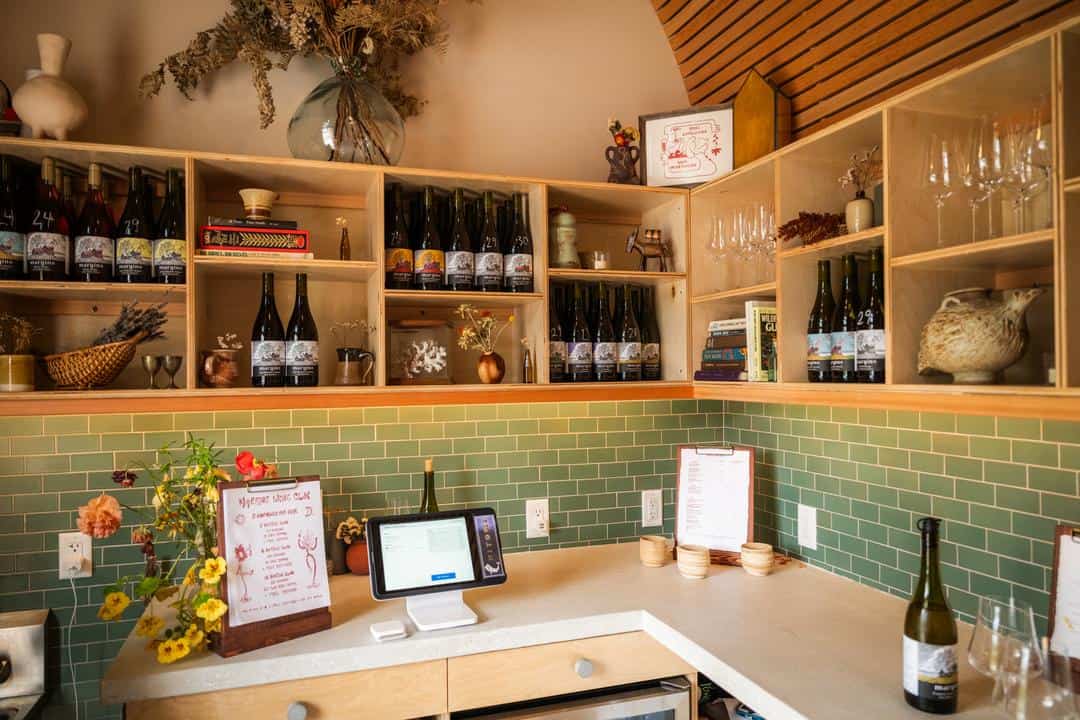
Margins Wine Cubby is located in the very spot Megan had her eye on for years. When the opportunity arose to convert the 120 square foot space into a tasting room, she jumped on it. “The experience I’m trying to help cultivate here is a community-oriented space,” she explains. “So, when people come in here, they have the privilege of getting to talk to each other and connecting over organic agriculture, local food, talking about how there’s only two women-owned wineries in the entire Santa Cruz mountains – and why that might be. It’s a space rich in conversation because it’s a community space.”
Visiting Santa Cruz? Head to Margins Wine Cubby
Megan encourages anyone visiting the Santa Cruz area to stop in to the Margins Wine Cubby. “We’re only a mile away from the ocean. They can grab a bottle and then go walk on West Cliff. Or, they can drive five minutes and be on a trail that goes into the redwoods. So there’s a lot of value in the proximity here to beautiful places.”
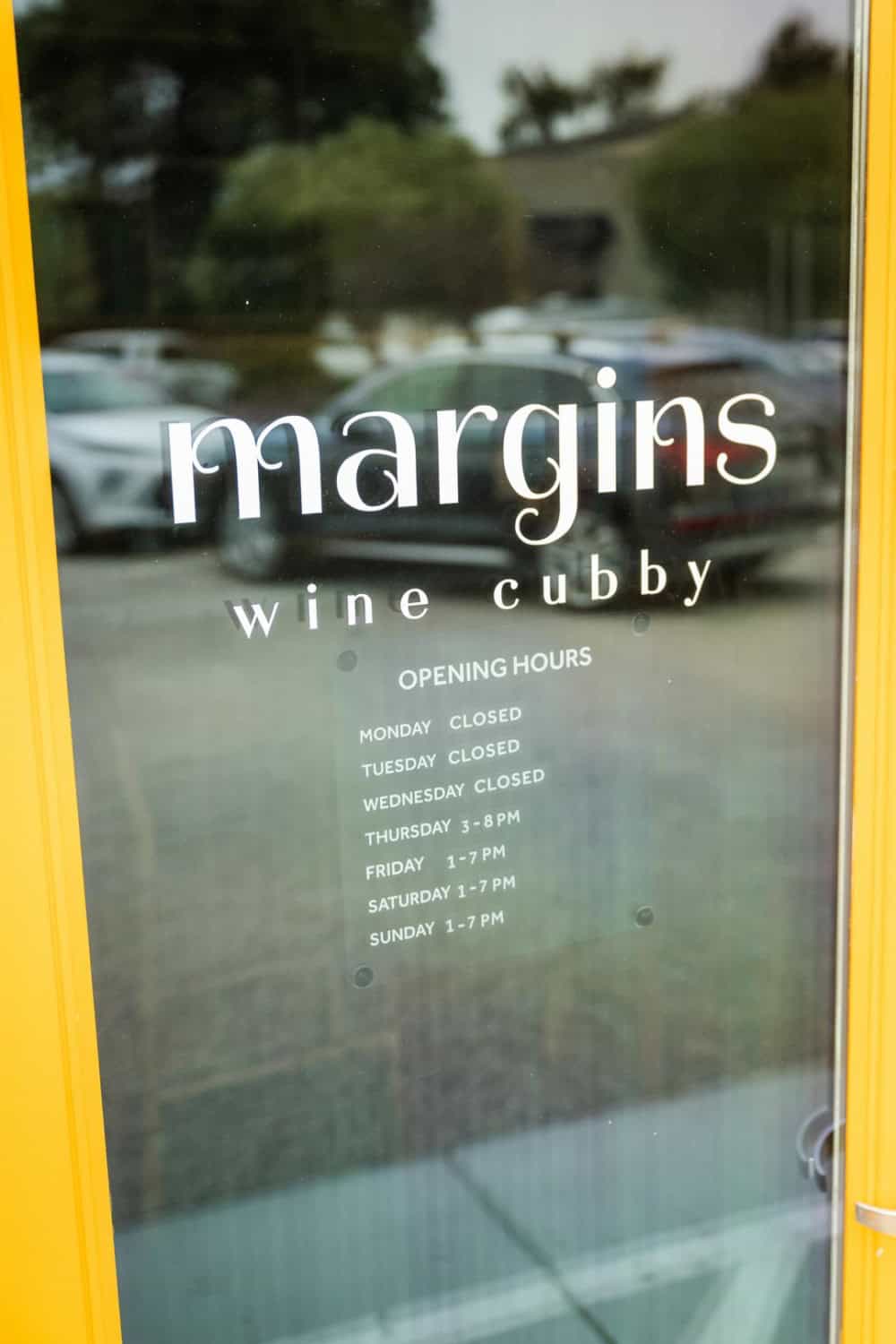
Visit the Margins Wine Cubby
402 Ingalls St.
Santa Cruz, CA 95060
Thursday 3-8pm
Friday/Saturday/Sunday 1-7pm
*reservations preferred. walk-ins subject to availability.*
Article by Hilary Rance. Photography by James Collier and Alycia Moreno.

